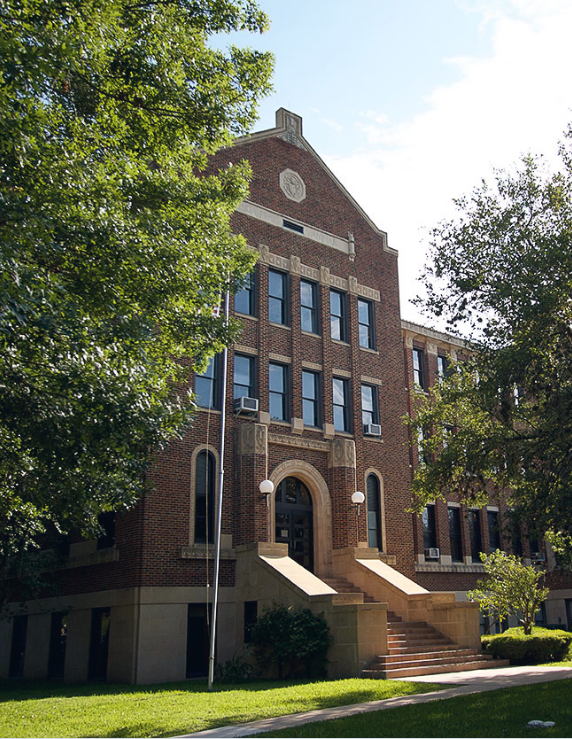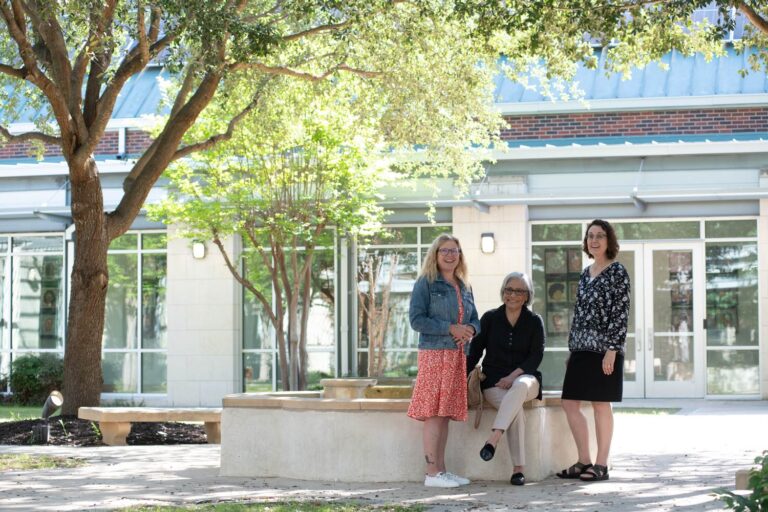A few years ago San Antonio declined to put a bid in for the new Amazon Headquarters. Many large cities made elaborate presentations and spent big money to try to lure the mega company to their area. 50,000 high paying jobs were offered, which would be a real game changer for any city that would win the prize. San Antonio, seventh largest city in the country, did not even try. Some local business leaders criticized the decision not to engage in the competition. However, the decision of our civic leaders made sense. We were not ready then. We still are not ready.
Why is this community not ready? To begin, we are woefully undereducated, with a high school dropout rate that is very high, and a low college graduation rate, resulting in a low percentage of college graduates. We have poor infrastructure of transportation, a small airport and no light rail. We are the nation’s most economically segregated city and have the highest poverty rate. Certainly the images of hundreds of cars lined up for food distribution during this pandemic underscores this.
As much as I love the city where I was born, raised and have lived all my life our reality hurts. We were just not ready. We are still not dressed for this party and we have a lot to do to get this community dressed. That does not mean we are not trying to make progress. We are. More action is needed.
That is what the gospel today is about. This is the third of a series of parables of judgment. It is similar to last week’s wicked tenants. Matthew has a favorite theme: Following Christ is more than words and excuses, it must involve action. God’s reign is not what you expect it to be. There is the invitation and then how we dress when we come to the banquet.
The parable involves a feast for the King’s son. In scripture a feast often refers to the heavenly banquet. It speaks of God’s generosity and how we are to respond. Normally the king would only invite the wealthy and prominent people, pretty much as would happen today. The custom for those invited was to wait to see how the dinner developed before accepting to go. Who else is going? Does this sound familiar or what? However, by saying no they shamed the king which was a great offense. The second group did worse by killing the servants, and the king retaliates and destroys their city.
Matthew again is employing images for what happened to Israel. Prophets as well as Christian missionaries were at first rejected then mistreated by the Jewish people, who for the most part never accepted the invitation to repent or to follow Christ and share in the banquet. Jerusalem is destroyed by the Romans in AD 70 before this gospel is written. This parable seems to reflect that history.
The story continues as the king breaks protocol and invites everyone. He instructs servants to go everywhere to invite. Matthew writes, “the bad and the good” get invited, indicating in the Christian Church both are present. Actually, there is bad and good in each of us, right?
Matthew is again referring to the conversion of Gentiles which disturbed Jewish Christians. This open invitation would have shocked the people listening, as the elite would never eat with the others. In an honor/shame culture as the Jews had then, this was unacceptable. Jesus was always criticized for dining with those unwanted by the elites, but he welcomed all to repentance and the marginalized responded more.
The parable gets complicated, as they all do. It is not enough to be invited. One must prepare to participate. There is no room for complacency or indifference. Matthew alone adds this last part where the king goes to look at and meet the guests, a final judgement before they are allowed to stay. Those who accept the invitation have the responsibility to respond appropriately. The silence (indifference) of the one without a garment is an admission of guilt. He has nothing to speak of for his actions. Matthew again stresses his favorite theme: actions speak louder than words. The Christian who thinks just because I am a Christian I need do nothing more is making a big mistake.
Laxity, not paying the price of discipleship, which is carrying a cross, means I am not dressed for the banquet. The wedding garment was a sign of respect for the one who invited and for others who were dressed appropriately.
So, what is the dress? To be clothed with good deeds. As Paul says to the Colossians: “clothe yourselves in compassion, kindness, humility, meekness and patience.” The wedding garment is the sign of active faith. Membership is not enough, as there must be action. One thing is to invite and allow all to enter, the other is to condone all behavior, which Matthew says they must reject. Those who pretend to be Christian are as bad as those who reject the invitation.
You don’t need the garment to be invited, but you need it to stay in the banquet. One cannot take anything for granted and must still put faith into action. The violator is thrown out not into the street, but into the darkness, namely hell. He is like the bad servant who must stay in jail with torture, until the impossible debt is paid, which is forever.
On Holy Saturday, after the newly baptized come out of the water they are clothed in a white garment. The white garment is a sign they have to be ready to act, to serve. During this pandemic, we see another white garment which comforts us when we are sick. Doctors wear a white coat, which is a sign of their service and commitment to heal.
The invitation to the banquet is God’s free gift to us, but we must respond with good deeds. Sometimes it is not just that we have excuses for not fully accepting the invitation, but we also might just ignore it and be indifferent by our silence. We at times ignore the needs of others around the world and even those in front of us, which is what Pope Francis talked about when he uses the phrase, “the globalization of indifference.”
So, how is San Antonio going to be ready for other invitations? What will we do to prepare? This year a young man from Mission Concepcion who had been an altar server and volunteer for years graduated and went to college out of town. The family, very active in the parish, has limited means. He is the first in his family to go to college, but it is a struggle to cover the costs. I helped and reached out to people who responded readily with gifts for him. So far so good. In the last few years, I and others have been able to find help for several good students from poor families wanting a better education. That is the kind of action that will help our city get ready for the invitations of the future.
We need to help especially young people with limited resources to develop their gifts. They are the future. We must work to improve life for all, such as better education, more job training, and infrastructure. None of us can be indifferent. There will be more invitations. When we treat each other right, we can all accept to go to the feast.
However, there is another feast, something more immediate. We are invited to this weekly banquet, the Eucharist. For those who attended today in person, did we come fully clothed, not just with what we physically wear, but with what we did this past week? Did we come clothed with good deeds?
Full conscious participation in the banquet of the Lord, the Eucharist, is our call. When we live the Mass all week it affects others and they respond. That action then spills out to the world. That is how we attract people to this feast. That is how we make a better world.
Next Sunday, when you get ready for Mass, whether you plan to attend in person or virtually, ask yourself what clothes you have to put on. Think about what you did the past week. Those are your clothes. How do they look on you?
 Fr. David Garcia is a retired priest from the Archdiocese of San Antonio, Texas, where he served for 44 years. During that time, Fr. Garcia was instrumental in the effort to have the Old Spanish Missions recognized as a UNESCO World Heritage Site and also oversaw the multimillion-dollar restoration of San Fernando Cathedral. Fr. David served as pastor for several parishes in San Antonio, including the historic Mission Concepción. He also served as Senior Advisor for Clergy Outreach at Catholic Relief Services, the official international humanitarian and relief agency of the US Conference of Catholic Bishops.
Fr. David Garcia is a retired priest from the Archdiocese of San Antonio, Texas, where he served for 44 years. During that time, Fr. Garcia was instrumental in the effort to have the Old Spanish Missions recognized as a UNESCO World Heritage Site and also oversaw the multimillion-dollar restoration of San Fernando Cathedral. Fr. David served as pastor for several parishes in San Antonio, including the historic Mission Concepción. He also served as Senior Advisor for Clergy Outreach at Catholic Relief Services, the official international humanitarian and relief agency of the US Conference of Catholic Bishops.



